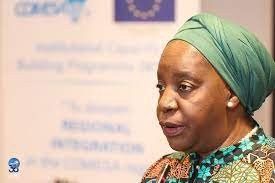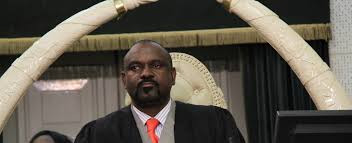Jacob Mutisi With the growth of the internet recording and preserving Zimbabwe’s history has never been so easy. Zimbabwe has had a history of disputes when it comes to chieftainship, ownership of land and even family conflicts because of lack of historical records.
The internet consists of online databases that are available through the many library websites, newspapers, journals, magazines, television and documentaries. Because so many computer servers, clouds and computers are interconnected through networks, a pool of information is created and stored. On the internet, historians, storytellers, chiefs and family members can now post and share their history for future generations, making it easy for future generations to access.
Zimbabwe has a rich and complex history from the national languages, the tribes, the wars, colonialism, political parties and the war of liberation. Much of the modern depiction of Africa preceding written history is through archaeology and antiquities. Historically, societies throughout southern Africa have preserved knowledge and shared history about the past through verbal, visual, and written art forms. Often, the responsibility of recording historical information was consigned to professional historians, trusted individuals whose superior wisdom and training equipped them to remember and interpret vast stores of information for the benefit of the community. In Zimbabwe chiefdoms, historians were often religious or political advisors who regulated royal power, supporting or checking it as necessary.
Records and narratives kept by African historians are among the most informative sources for the reconstruction of precolonial history on the continent. Epics about heroic warriors, kings and wars, provide a detailed political history of the southern region of Africa that has been corroborated by contemporaneous Zimbabweans texts. In Matabeleland, Ndebele historians have maintained royal chronologies that include references to the wars that they fought and how they conquered Zimbabwe.
Histories were transmitted orally, in performance, dances, theatres, from one generation of specialists to the next. While some narratives, such as those detailing the origins of a nation or royal lineage, were mythic in scope, others were much more prosaic and might have concerned legal codes or accounts of village or clan history.
Some historical texts, especially epic events, were components of greater performance traditions in which the verbal artistry of the narrator was as significant as the story itself. In contrast, texts that concerned legal matters or dynastic lists, in which verbal accuracy was of paramount importance, were learned by rote so that even the original words were preserved. This practice often conserved archaic or formalised language that required interpretation by specialists, and the cryptic qualities of the texts added to their aura of importance.
Keep Reading
- Chamisa under fire over US$120K donation
- Mavhunga puts DeMbare into Chibuku quarterfinals
- Pension funds bet on Cabora Bassa oilfields
- Councils defy govt fire tender directive
In images of the past in Zimbabwe important individuals were immortalised in sculptural traditions that venerated the memory of past rulers and court officials. Such portraits might have been produced during the life of the subject and preserved over time or sculpted posthumously, and were often central to the political workings of the kingdom.
With all this history, Zimbabwe needs a history digital footprint that future generations will be able to read and follow. The only way to achieve this is to encourage and create a culture of placing the nation’s historical facts, battles and events in cyberspace which is now the biggest source of information.
- For more details please Whatsapp/call +263772278161
- Mutisi is the CEO of Hansole Investments (Pvt) Ltd and the current chairperson of Zimbabwe Information & Communication Technology, a division of Zimbabwe Institution of Engineers.





